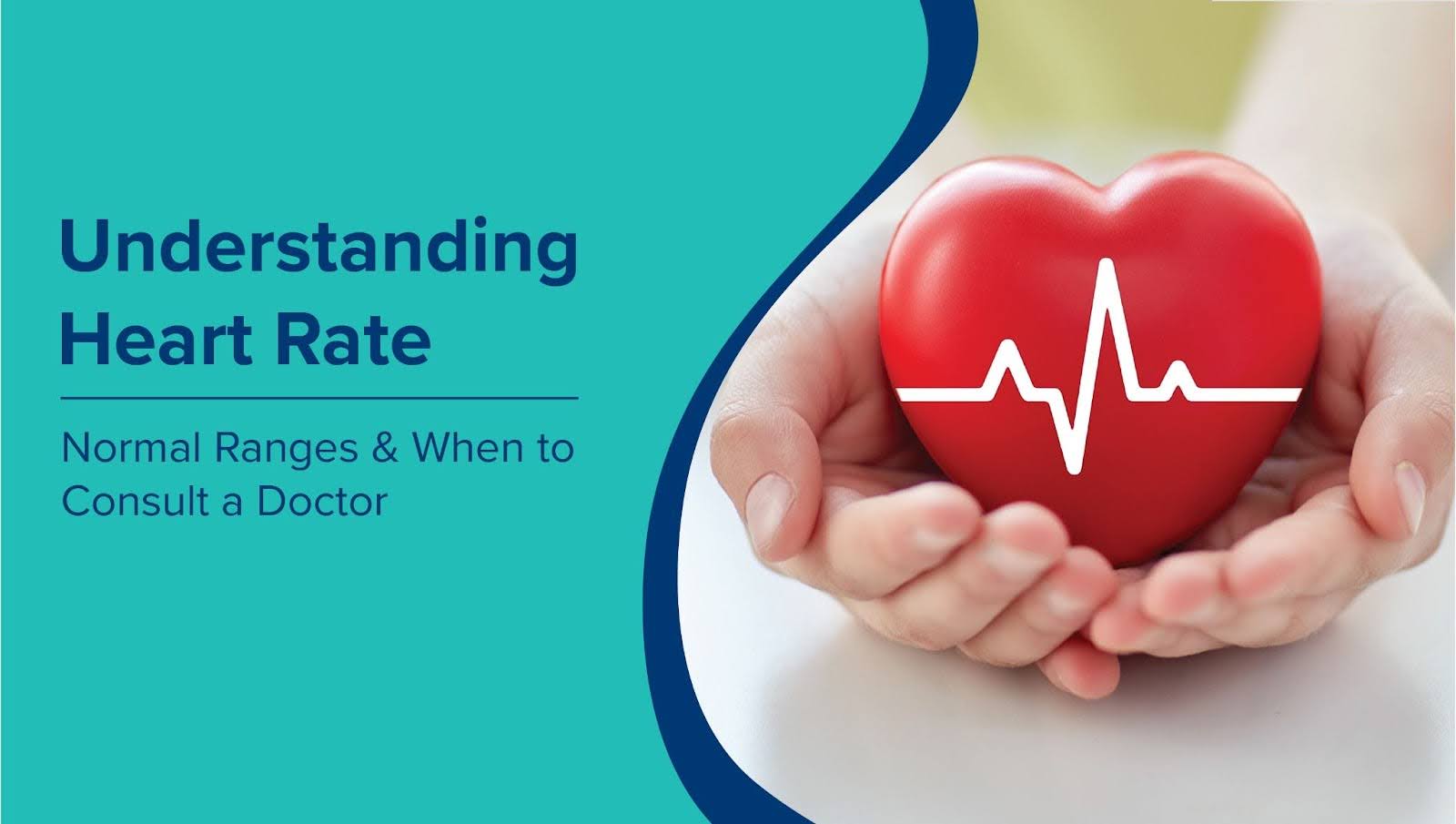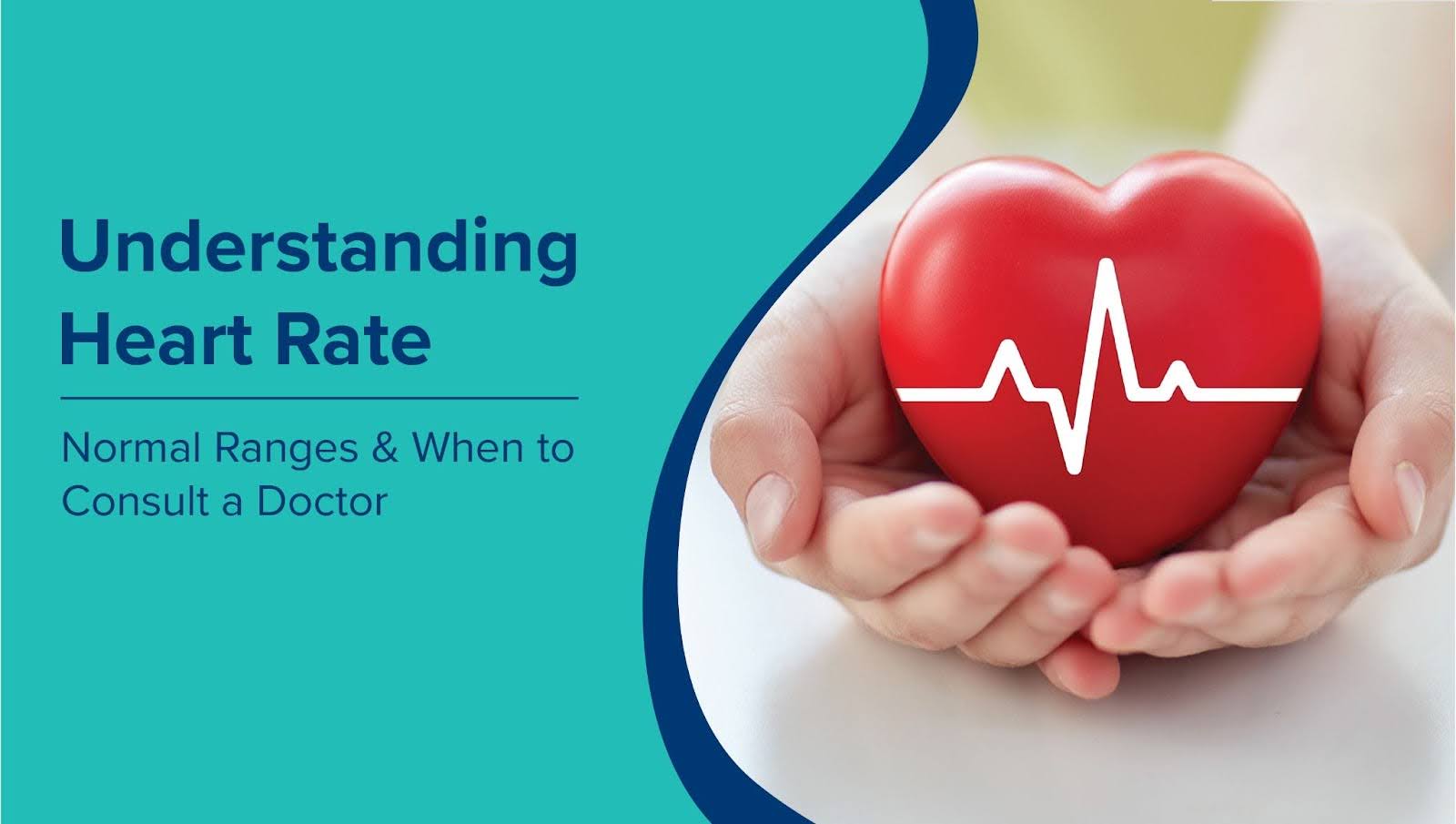Heart rate is one of the most important indicators of cardiovascular health. It reflects how well the heart is functioning at rest and during activity. While occasional fluctuations in heart rate are normal, consistently abnormal readings can be a sign of an underlying issue. Understanding the difference between a normal pulse rate and what could be considered too high or too low helps individuals take better control of their heart health. This guide explains the normal heart rate by age, factors that affect it, and when to seek medical attention.
What is Heart Rate and How is it Measured?
Heart rate is the number of times the heart beats in one minute. It is measured in beats per minute (bpm) and helps show how well the heart is working to pump blood through the body. In most healthy people, the pulse rate, what you feel when you press gently on your wrist or neck, is the same as the heart rate.
Simple Ways to Check Your Heart Rate
- Using your fingers: Place your index and middle finger on your wrist (just below the thumb) or on the side of your neck. Count the number of beats for 60 seconds.
- Digital blood pressure machines: These often show your pulse rate along with your blood pressure reading.
- Smartwatches and fitness bands: These devices track your heart rate throughout the day, especially during workouts or sleep.
- Medical tests: An ECG or Holter monitor used in hospitals gives a more detailed look at your heart rhythm and rate.
Keeping an eye on your heart rate regularly, especially if you have high blood pressure, diabetes, or a heart condition, can help catch any unusual changes early and keep your heart healthy.
Normal Heart Rate by Age
A healthy resting heart rate varies depending on age, fitness level, and overall health. In general, a lower resting heart rate often indicates better cardiovascular fitness. Here's an overview of the normal heart rate by age:
|
Age Group |
Normal Heart Rate (bpm) |
|
Newborns (0–1 month) |
70–190 |
|
Infants (1–12 months) |
80–160 |
|
Children (1–10 years) |
70–120 |
|
Teens (11–17 years) |
60–100 |
|
Adults (18–64 years) |
60–100 |
|
Seniors (65+ years) |
60–100 (may vary slightly) |
These values reflect the normal pulse rate when a person is at rest. Temporary changes during physical activity, stress, or illness are common and usually not a cause for concern. Athletes or physically active individuals may have resting heart rates as low as 40–60 bpm, which is still considered normal due to their high level of cardiovascular efficiency.
Factors That Affect Heart Rate
Several internal and external factors can influence a person's heart rate throughout the day. Understanding these influences helps differentiate between normal variations and signs that may need medical attention.
Common factors that affect heart rate include:
- Physical activity: Exercise temporarily raises the heart rate to meet the body’s increased oxygen demand. It usually returns to normal once the activity stops.
- Emotional stress: Anxiety, fear, or excitement can cause a noticeable increase in heart rate.
- Fitness level: People who are physically fit tend to have a lower resting heart rate due to better cardiovascular efficiency.
- Medications: Some drugs (like beta-blockers) slow the heart rate, while others (like decongestants or thyroid medication) may raise it.
- Body temperature and illness: Fever or infections can temporarily increase heart rate.
- Caffeine and stimulants: Consumption of coffee, tea, or energy drinks may lead to a temporary spike.
- Sleep and time of day: Heart rate is usually lower during rest or sleep and may naturally vary throughout the day.
What is Considered an Abnormal Heart Rate?
While heart rate naturally rises and falls throughout the day, consistently abnormal readings may indicate a potential health concern.
Low Heart Rate (Bradycardia)
Defined as fewer than 60 beats per minute at rest (except in athletes), bradycardia can sometimes cause:
- Dizziness
- Fatigue
- Weakness
- Shortness of breath
- Fainting (in severe cases)
High Heart Rate (Tachycardia)
A resting heart rate over 100 beats per minute may signal tachycardia, especially if not linked to exercise or stress. Symptoms can include:
- Palpitations
- Light-headedness
- Chest discomfort
- Rapid pulse
- Shortness of breath
Brief increases or decreases may be harmless, but sustained or symptomatic changes should be evaluated by a doctor. Keeping track of your normal pulse rate helps identify when something is off and may need attention.
Signs That Need Medical Attention
While mild heart rate variations are common, certain symptoms alongside abnormal readings may point to an underlying condition that requires prompt evaluation.
Seek medical help if you experience:
- A resting heart rate consistently above 100 bpm without physical exertion
- A very slow heart rate below 60 bpm accompanied by fatigue or dizziness
- Irregular heartbeat or skipped beats
- Sudden changes in heart rate that don’t resolve with rest
- Chest pain, pressure, or discomfort
- Shortness of breath, fainting, or light-headedness
These could indicate conditions such as arrhythmia, heart block, thyroid imbalance, or other cardiovascular issues. Early detection is key to effective treatment. If you're unsure whether your heart rate is within a normal heart rate by age, it’s best to monitor it regularly and consult a healthcare professional when needed.
How to Maintain a Healthy Heart Rate?
Keeping your heart rate within a healthy range supports long-term cardiovascular health and reduces the risk of complications. Simple daily habits can make a big difference.
Tips to Maintain a Normal Pulse Rate
- Exercise regularly: Moderate activities like walking, cycling, or yoga improve heart efficiency and help lower resting heart rate over time.
- Eat a heart-healthy diet: Include fruits, vegetables, whole grains, and healthy fats. Limit salt, sugar, and processed foods.
- Manage stress: Practice relaxation techniques such as deep breathing, meditation, or journaling.
- Avoid stimulants: Limit caffeine, energy drinks, and tobacco, which can elevate heart rate.
- Stay hydrated: Dehydration can strain the heart and lead to an increased heart rate.
- Sleep well: Aim for 7–8 hours of restful sleep to allow the body to recover and regulate heart function.
- Maintain a healthy weight: Excess weight increases the workload on the heart.
- Monitor your heart rate: Keep track of your resting pulse and watch for sudden or persistent changes.
How MaxAtHome Can Help with Heart Health Monitoring
Regular tracking of heart health doesn’t have to mean frequent hospital visits. MaxAtHome offers convenient, at-home services to help monitor and manage heart rate and related health indicators with ease.
Our services include:
- Home ECG tests: Quick and reliable heart rhythm assessments performed by trained professionals
- Vital signs monitoring: Track heart rate, blood pressure, and oxygen levels at home
- Cardiac health check-up packages: Include lipid profile, blood sugar tests, ECG, and more
- Digital reports: Easy access to test results and doctor consultations through online platforms
- Trusted care at your doorstep: Services available across multiple cities including Delhi, Noida, Gurugram, Mumbai, and Chandigarh
With MaxAtHome, individuals can conveniently monitor their normal pulse rate, detect early signs of concern, and take proactive steps for better heart health, all from the comfort of home. To book a home ECG or vital signs test, call 09240299624 today.
Frequently Asked Questions
What is a normal heart rate at rest?
A normal resting heart rate for adults typically ranges from 60 to 100 beats per minute. Athletes or very fit individuals may have lower readings, which can still be healthy.
What is the normal pulse rate for adults?
The normal pulse rate for most adults is between 60 and 100 bpm when resting. Temporary increases may occur due to exercise, stress, or illness.
What is the normal heart rate for men vs women?
While the normal range is similar (60–100 bpm), women may have a slightly higher average resting heart rate than men, due to hormonal and physiological differences.
What is the average heart rate by age?
It varies:
- Children: 70–120 bpm
- Teens: 60–100 bpm
- Adults: 60–100 bpm
- Seniors: Around 60–100 bpm, but slightly lower in some cases is also common
What is considered a dangerously high heart rate?
A resting heart rate above 120 bpm or persistently over 100 bpm without a clear reason may be dangerous and should be assessed by a doctor.
How can I check if my heart rate is normal?
You can measure it using a smartwatch, fitness tracker, or by checking your pulse manually. If your resting rate is consistently outside the normal range, speak with a healthcare provider.
What factors can affect my pulse rate?
Common factors include activity, stress, medications, hydration, illness, and fitness level. Caffeine and sleep also influence your heart rate.















